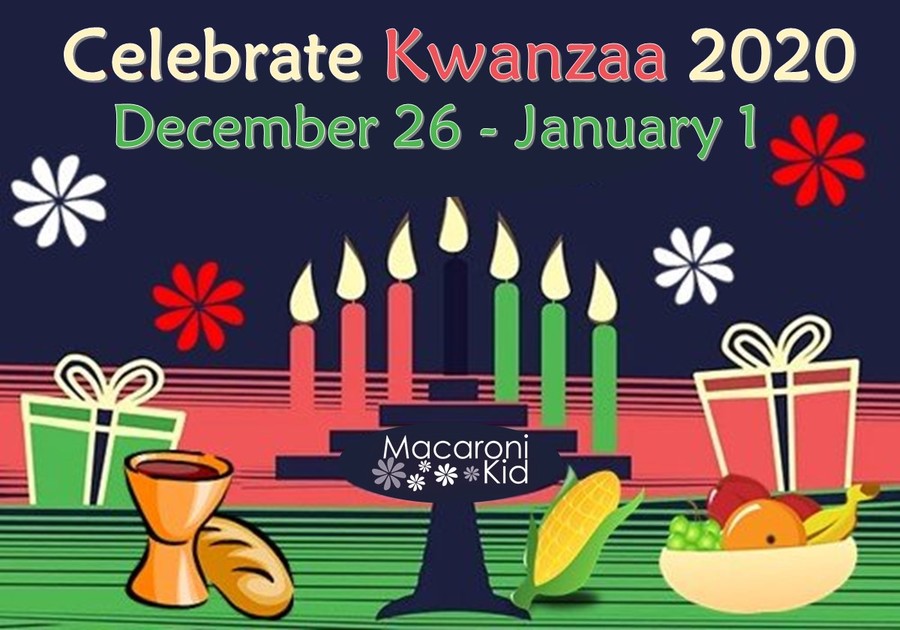Kwanzaa, a week-long celebration honoring African-American culture and heritage, features candle-lighting on a Kinara, gift-giving, and feasting. The Kinara holds seven candles representing Unity, Self-Determination, Collective Work and Responsibility, Cooperative Economics, Purpose, Creativity, and Faith and is celebrated every December 26 to January 1st.
2020 THEME “Kwanzaa and the Well-Being of the World: Living and Uplifting the Seven Principles"
Each day one of the candles in the candle holder (Kinara) is lit. Each candle represents one of the seven symbols, as well as being symbolic of African gods. A candle is lit each day on the special candlestick, the "Kimara", to represent these principles. The Kimara is placed on a Mkeka, a traditional straw mat, and one ear of corn is also placed on the mat for each child in the family. A fruit basket, called a "mazao", is also displayed, along with a special "unity" cup, out of which everyone drinks.
- Unity
- Self-Determination
- Collective Work and Responsibility
- Cooperative Economics
- Purpose
- Creativity
- Faith
- Crops: Symbolic of African harvest celebrations.
- Mat: Symbolic of the tradition and history.
- Candle Holder: Symbolic of the roots, and our parents people.
- Ear of Corn: Symbolic of children and the future.
- Seven Candles: Symbolic of the Nguzo Saba, the Seven Principles (see above) and the matrix and minimum set of values which African people are urged to live by.
- Unity Cup: Symbolic of the principle of unity.
- Gifts: Symbolic of the labor and love of parents and their children.
Kwanzaa is not actually a religious holiday, and it does not replace Christmas. It was created in 1966 after the Watts riots in Los Angeles, Dr. Maulana Karenga, professor and chairman of Black Studies at California State University, Long Beach, created Kwanzaa as a way to bring African Americans together as a community.
The Holiday, Kwanzaa, is based on the year-end harvest festival that has taken place traditionally throughout Africa for thousands of years. The word "Kwanzaa" comes from the African language of Swahili and the phrase "Matunda ya Kwanza," which means "first fruits of the harvest." Karenga, specifically chose this phrase from Swahili because the language is used by the various tribes and people located throughout Africa.
- Seven Spools of Thread: A Kwanzaa Story by Angela Medearis and illustrated by Daniel Minter: The history of Kwanzaa is included in this beautifully illustrated story. Ages 5-8.
- A Very Special Kwanzaa by Debbi Chocolate: Remembering how the kids made fun of his dashiki, beads, and sandals the previous year, Charlie is reluctant to participate in the present year's Kwanzaa Festival at school, until he remembers the deeper meaning of Kwanzaa.
To find more books on Kwanzaa CLICK HERE
For more information on Kwanzaa visit:
https://www.officialkwanzaawebsite.org/index.html
https://www.woojr.com/all-about-kwanzaa-for-kids/
https://www.rd.com/article/guide-to-kwanzaa/
Kwanzaa in Los Angeles | Facebook



